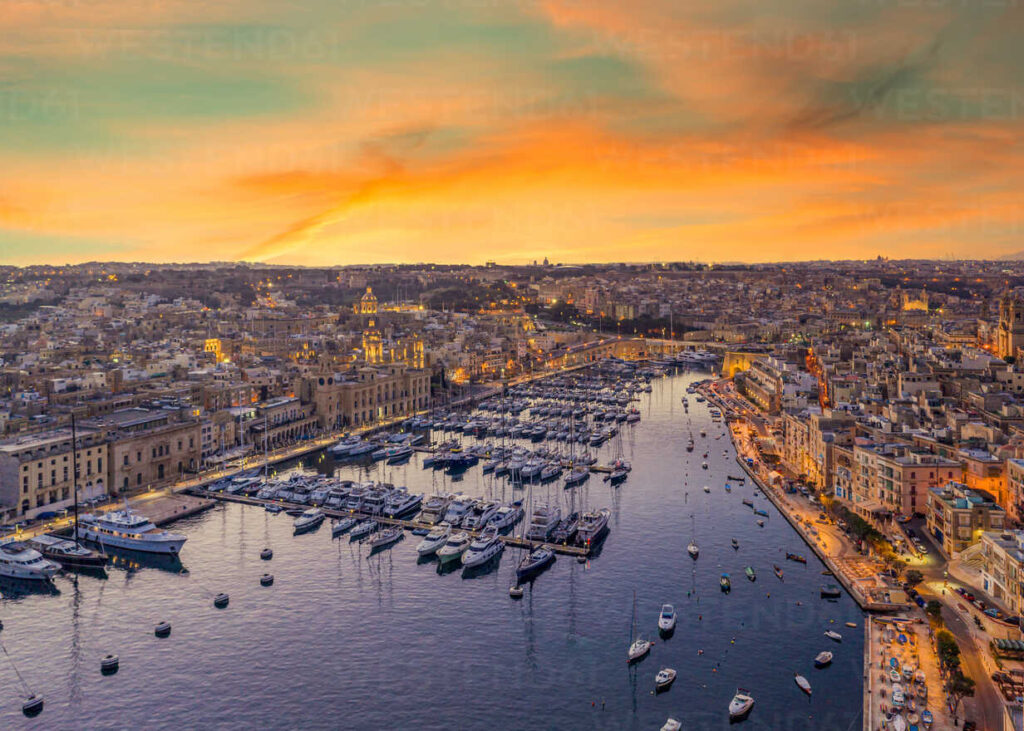
History
The history of Malta is a long and colourful one dating back to the dawn of civilisation.
The Maltese Islands went through a golden Neolithic period. The remains include the mysterious temples dedicated to the goddess of fertility. Later on, the Phoenicians, the Carthaginians, the Romans and the Byzantines, all left their traces on the Islands.
In 60 A.D. St. Paul was shipwrecked on the island while on his way to Rome. He brought Christianity to Malta.
The Arabs conquered the islands in 870 A.D. They left an important mark on the language of the Maltese. Until 1530 Malta was an extension of Sicily. The Normans, the Aragonese and other conquerors who ruled over Sicily also governed the Maltese Islands. It was Charles V who bequeathed Malta to the Sovereign Military Order of St. John of Jerusalem who ruled over Malta from 1530 to 1798. Following the Great Siege of 1565, the Knights took Malta through a new golden age. The Knights of Malta were a key player in the cultural scene of 17th and 18th century Europe.
The artistic and cultural lives of the Maltese Islands were injected with the presence of artists. These include Caravaggio, Mattia Preti and Favray who were commissioned by the Knights to embellish churches, palaces and auberges.
In 1798, Napoleon Bonaparte took over from the Knights on his way to Egypt. The French presence on the islands was short lived. The English, who were requested by the Maltese to help them against the French, blockaded the islands in 1800.

British rule lasted until 1964 when Malta became independent. The Maltese adopted the British system of public administration, education and legislation. Malta became a Republic in 1974. The foreign military bases on the island closed down permanently in 1979. Malta joined the European Union in May 2004 and the Eurozone in January of 2008.
Why invest in Malta?
Located in the centre of the Mediterranean, between Europe and North Africa, Malta is the European Union’s smallest member state. Famous for its 7,000-year history and 300 days of sunshine, Malta has emerged as one of the most remarkable success stories in the Eurozone. Recognised for its pro-business attitude, state-of-the-art infrastructures, it has become the go-to country for growth-minded entrepreneurs.
Financial services, fintech, science and technology, high value manufacturing, health, tourism, education, iGaming, maritime services, aviation and creative industries. These sectors the dominant features of Malta’s economic landscape. In particular, Malta’s EU and Eurozone membership helped the country to strengthen its services sector. It also helped the export of services across the EU member states is today a prime driver of economic growth.
Malta is where regulatory innovation and emerging technologies complement each other. These create the right conditions for financial companies, both big and small, to thrive. A seasoned talent pool, strong language skills, a competitive business environment and high quality of life, and it becomes clear why investors believe in Malta, its potential and its future.
Malta, the place to be!
Despite being the EU’s smallest member state, it has been one of the most exciting countries to watch and invest in. Over the years, the island’s leaders have been on a mission to make Malta a magnet for financial services. It was this vision to turn the island into a platform for international business and to develop a model economy, which has regularly been among the best in the EU.
In no small part, the country’s rise into the ranks of Europe’s leading finance centres has been driven by the island’s reputation for stability, predictability and security. A robust, EU-compliant regulatory framework, diverse ecosystem and deep talent pool also helped financial services companies from around the world to find opportunities for doing business.
Behind Malta’s ascent is a combination of sound policy-making and a pro-business environment, and its development has largely been attributed to its focus on knowledge and value-added industries.
While financial services has become a key pillar of its economy, Malta also boasts a thriving tourism industry. It is home to a large maritime service cluster and supports a host of other sectors including ICT, advanced manufacturing and life sciences.
Melvyn Mangion hails from Malta. Learn more about the Maltese islands by following this blog.